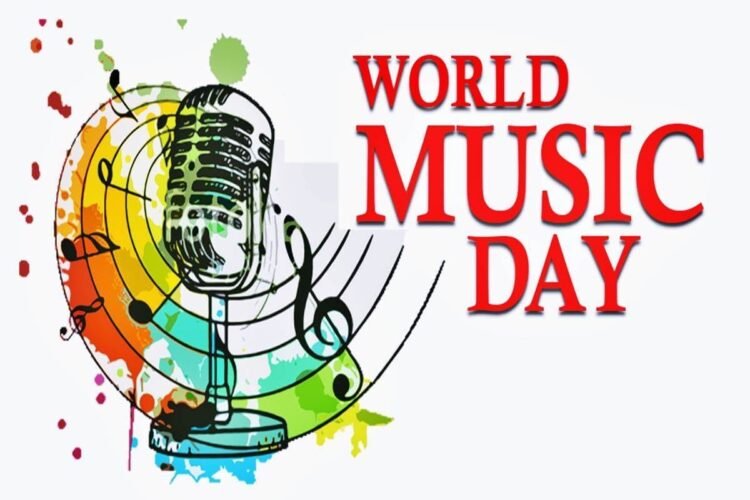Introduction to World Day of Music
World Day of Music, also known as Fête de la Musique, is an annual celebration held on June 21st that originated in France. This vibrant event was initiated in 1982 by Jack Lang, the then French Minister of Culture, and Maurice Fleuret, a composer and music journalist. Their vision was to create an event where both amateur and professional musicians could freely express themselves, thereby making music accessible to everyone.
From its inception, World Day of Music has grown exponentially, extending its reach far beyond French borders. Today, it is celebrated in over 120 countries around the globe, encompassing a wide variety of musical genres and cultural expressions. The event has become a cornerstone for fostering communal harmony and interaction among people of diverse backgrounds and skill levels. It serves as a platform for individuals to come together, share their love for music, and experience the joy of collective creativity.
One of the fundamental principles of World Day of Music is its inclusivity. Unlike many music festivals that focus on professional performances, this event encourages participation from anyone who has a passion for music, regardless of their expertise. Whether you are a seasoned musician or someone picking up an instrument for the first time, World Day of Music offers a welcoming space for all.
The event’s inclusive nature is complemented by its open-access ethos. Concerts and performances are typically held in public spaces such as streets, parks, and town squares, making it easy for people to join in or simply enjoy the music. This not only democratizes musical expression but also transforms urban landscapes into vibrant cultural hubs, fostering a sense of community and shared experience.
Through its global reach and inclusive spirit, World Day of Music continues to be a powerful reminder of music’s universal language, capable of bridging gaps and bringing people together in celebration.
Music’s Innate Connection to Humanity
Music, in its diverse forms, transcends cultural and linguistic barriers, weaving a universal tapestry that connects humanity. From the rhythmic beats of a tribal drum to the complex symphonies of a grand orchestra, music has the innate ability to resonate with individuals on a deeply personal level. Even without formal training, people around the world instinctively respond to the patterns of rhythm and melody. This universal understanding of music highlights its intrinsic role in the human experience.
One of the most fascinating aspects of music is its profound impact on both the human psyche and the natural world. Studies have shown that plants exposed to classical music tend to grow faster and healthier compared to those that are not. This phenomenon suggests that music’s influence extends beyond humans, affecting living organisms in ways we are only beginning to understand. Additionally, music therapy has been widely recognized for its benefits in treating various psychological conditions, underscoring its therapeutic potential.
Historically, music has played a crucial role in communal activities, such as rituals, celebrations, and storytelling. It has been utilized to convey emotions, reinforce social bonds, and pass down traditions. The universality of music is evident in its presence in virtually every culture, where it is often considered a vital element of communal identity. Whether it’s the soothing lullabies sung to infants or the powerful anthems that inspire unity, music has the power to evoke a wide range of emotions and responses.
The innate connection humans have with music is a testament to its universal appeal. It speaks to the shared human experience, bridging gaps and fostering a sense of unity. As we celebrate the World Day of Music, we acknowledge its profound impact on our lives and its enduring presence in our collective consciousness. Music, in all its forms, continues to be a vital and cherished aspect of human existence.
Historical Significance of Music
Music, as a universal language, has a rich and intricate history that dates back to ancient times. One of the earliest known musical instruments, the Neanderthal flute, discovered in Slovenia, is believed to be over 40,000 years old. This ancient artifact provides a glimpse into the role music played even in prehistoric societies. From these primordial beginnings, the evolution of music has been marked by significant milestones that have shaped human culture and daily life.
As civilizations progressed, so did the complexity and variety of musical instruments and styles. Ancient Egypt, for instance, saw the development of harps and flutes, while ancient Greece contributed the lyre and kithara. These instruments were not only used for entertainment but also for religious and ceremonial purposes, underscoring the integral role of music in society.
The medieval period witnessed the emergence of Gregorian chants, which were pivotal in the development of Western music. These monophonic, unaccompanied sacred songs laid the foundation for the complex polyphonic structures that would later characterize Renaissance music. The Renaissance era itself was a period of musical innovation, with the invention of new instruments like the violin and the lute, and the creation of more intricate compositions and harmonies.
Moving into the Baroque and Classical periods, composers like Johann Sebastian Bach, Wolfgang Amadeus Mozart, and Ludwig van Beethoven revolutionized music with their compositions, which remain influential to this day. The invention of the piano during this time also provided composers with new opportunities for musical expression.
The 20th century brought about an explosion of musical diversity with the advent of jazz, blues, rock ‘n’ roll, and electronic music. Each genre reflected the social and cultural changes of its time, demonstrating music’s ability to adapt and evolve. Today, music continues to be a vital part of human culture, facilitated by global digital platforms that allow for unprecedented access and distribution.
Throughout history, music has served as a powerful tool for communication, expression, and connection. Its continuous evolution highlights its enduring significance as an integral component of human life.
Music as a Form of Expression
Music stands as one of the most profound forms of expression, often conveying emotions and messages with an eloquence that words alone may lack. Its unique ability to articulate the human experience allows it to transcend cultural and linguistic barriers, fostering a sense of unity among diverse populations. Through melodies, rhythms, and harmonies, music communicates joy, sorrow, love, and anger, tapping into the universal aspects of human emotion.
One of the most compelling aspects of music is its capacity to bring people together. Regardless of language or cultural background, individuals can connect through shared musical experiences. For instance, classical compositions by composers like Ludwig van Beethoven and Wolfgang Amadeus Mozart continue to resonate across generations and geographies, illustrating music’s timeless and borderless nature. Similarly, contemporary genres such as pop, rock, and hip-hop often address universal themes of struggle, triumph, and identity, making them accessible and relatable to a global audience.
Diverse genres of music express a wide range of emotions and stories, each with its distinct style and impact. Blues music, with its roots in African American history, often conveys themes of hardship and resilience through its soulful melodies and poignant lyrics. Jazz, known for its improvisational nature, reflects freedom and creativity, allowing musicians to express their individual artistry. On the other hand, genres like reggae, exemplified by artists like Bob Marley, communicate powerful messages of unity and social justice, resonating deeply with listeners worldwide.
Music’s ability to transcend boundaries is also evident in its role in social movements and cultural exchanges. Songs like “We Shall Overcome” became anthems for the Civil Rights Movement, while global events like Live Aid have used music to raise awareness and funds for humanitarian causes. Through these examples, it is clear that music is not merely an artistic endeavor but a potent medium for expression, capable of uniting people and driving social change.
The Origins of Fête de la Musique
The inception of Fête de la Musique, also known as World Day of Music, can be traced back to France in the early 1980s. The festival was conceived under the visionary guidance of Maurice Fleuret, who was appointed as the director of music and dance at the Ministry of Culture in 1981. Fleuret brought with him a revolutionary perspective on music, encapsulated in his credo: “music everywhere and the concert nowhere.” His vision was to democratize music, breaking down the barriers that confined it to concert halls and making it a ubiquitous presence in everyday life.
Fleuret’s insights were significantly influenced by a comprehensive study he conducted in 1982, which explored the musical habits of the French population. The study revealed a fascinating statistic: one out of every two people in France played a musical instrument. This discovery highlighted a latent, widespread musical talent and passion among the populace that was not being adequately celebrated or harnessed. Fleuret saw this as an opportunity to transform the cultural landscape of France.
Inspired by these findings, Fleuret proposed the idea of a nationwide festival that would encourage both amateur and professional musicians to perform in public spaces. This initiative aimed to create a day where music would transcend social and economic barriers, allowing everyone, regardless of their background, to participate in the joy of making and listening to music. Thus, the first Fête de la Musique was held on June 21, 1982, coinciding with the summer solstice, a day symbolically associated with celebration and renewal.
The success of the inaugural event was immediate and overwhelming, setting the stage for Fête de la Musique to become an annual tradition. The festival’s inclusive nature and its emphasis on free performances in public spaces resonated deeply with people, fostering a sense of community and shared cultural identity. Over the years, Fête de la Musique has grown beyond France, inspiring similar celebrations in countries around the world, thereby affirming music’s universal appeal and its power to unite people across diverse cultures.
The First Celebration in Paris
The inaugural celebration of Fête de la Musique, or World Day of Music, took place in Paris on June 21, 1982. This event marked a significant moment in music history, setting the stage for an annual tradition that would soon resonate globally. The festival was initiated by the French Minister of Culture, Jack Lang, and music journalist, Maurice Fleuret, with a vision to make music omnipresent in the urban landscape. Their aim was to create a space where both amateur and professional musicians could share their passion with the public, bridging the gap between performers and audiences.
On that first day, the streets of Paris were transformed into open-air stages, with musicians of all calibers encouraged to perform. From classical quartets in historic courtyards to rock bands in bustling squares, the city became a vibrant tapestry of sound. The festival was inclusive, welcoming all genres of music, thus ensuring that there was something for every listener. This inclusivity was pivotal in exposing the public to a diverse array of musical styles, fostering a deeper appreciation for the art form.
One of the core principles of Fête de la Musique was to offer free concerts, breaking down the barriers that often restrict access to live performances. This initiative promoted a culture where music was accessible to everyone, regardless of socio-economic status. The open and free nature of the event invited spontaneous participation, with impromptu performances adding to the festival’s dynamic atmosphere. The streets, parks, and public spaces of Paris became communal venues, where music flowed freely, and the joy of shared experiences was palpable.
The success of this first celebration in Paris was evident in the enthusiastic participation and the palpable sense of community it fostered. It set a precedent for future celebrations, establishing Fête de la Musique as a beloved tradition that continues to unite people through the universal language of music. The festival’s enduring legacy is a testament to the power of music to transcend boundaries and bring people together in a shared cultural experience.
Global Expansion of World Day of Music
The inception of Fête de la Musique in Paris in 1982 marked the beginning of what would become a global phenomenon. Initially conceived by the French Ministry of Culture, this event was designed to celebrate the universal language of music, encouraging both amateur and professional musicians to perform in public spaces. The idea quickly resonated with the public, leading to its rapid adoption beyond the boundaries of Paris.
As years passed, the celebration spread across France, captivating the hearts of music enthusiasts and fostering a sense of communal spirit. The organic growth of Fête de la Musique soon transcended national borders, finding its way into cities across Europe. By the mid-1980s, nations such as Italy, Germany, and Switzerland had embraced the festival, recognizing its potential to unite people through the shared love of music.
The festival’s appeal continued to expand globally, reaching continents far and wide. Today, World Day of Music is celebrated in over 120 countries and 700 cities, from New York to Tokyo, Rio de Janeiro to Sydney. This worldwide proliferation is a testament to the festival’s enduring legacy and its ability to bridge cultural divides. The event promotes musical diversity, allowing a myriad of genres and styles to be showcased, fostering an environment of cultural exchange.
The international recognition of World Day of Music has undoubtedly contributed to its success. Governments, cultural organizations, and communities have all played pivotal roles in integrating the festival into their annual calendars. The impact of these celebrations is profound, offering platforms for emerging artists, preserving traditional music forms, and exposing audiences to new and diverse sounds.
In essence, the global expansion of World Day of Music underscores the unifying power of music. It serves as a reminder that, despite linguistic and cultural differences, music remains a universal language capable of fostering understanding and solidarity among people worldwide.
The Role of Social Media in Modern Celebrations
In the contemporary landscape, social media has become an indispensable tool in the celebration of World Day of Music. Musicians and artists leverage various platforms to build their presence, connect with global audiences, and share their performances in unprecedented ways. The impact of social media on these celebrations is multifaceted, fostering a sense of global community and accessibility that was previously unattainable.
Artists utilize social media platforms such as Instagram, Facebook, and Twitter to engage with their followers, share updates, and promote their music. By posting behind-the-scenes content, teasers for upcoming releases, and interactive stories, musicians create a more intimate connection with their audience. This direct line of communication helps to humanize the artists and deepen the fans’ loyalty and engagement.
One of the most significant developments in the digital age is the rise of virtual concerts and live streaming. Platforms like YouTube, Twitch, and TikTok have become popular venues for musicians to perform live for their fans, breaking down geographical barriers and allowing access to a global audience. During the COVID-19 pandemic, virtual concerts became a lifeline for both artists and fans, providing a sense of normalcy and connection in a time of isolation. These online performances have continued to thrive, becoming a staple in the celebration of World Day of Music.
Moreover, online music communities have flourished on social media. Groups and forums dedicated to specific genres, artists, or musical interests enable fans to connect with like-minded individuals, share their passion, and discover new music. These communities often organize virtual events, collaborative playlists, and discussion threads, fostering a vibrant and inclusive environment for music lovers.
In essence, social media has transformed the way we celebrate World Day of Music. It has expanded the reach of musicians, facilitated global connections, and created new opportunities for virtual engagement. As technology continues to evolve, the role of social media in these celebrations will undoubtedly grow, further enriching the universal language of music.
























